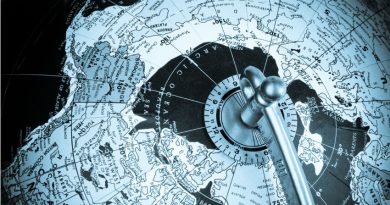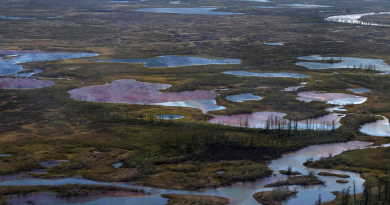Norway’s spy chief sees Russia more likely to attempt sabotage

The head of Norway’s foreign intelligence service believes Russia has become more likely to try to sabotage its infrastructure, such as oil and gas, than a year ago as Moscow becomes bolder in countering Western support for Ukraine.
“The risk level has changed,” Vice Admiral Nils Andreas Stensoenes, head of the Norwegian Intelligence Service (NIS), told Reuters.
“We believe sabotage is more likely, and we see acts of sabotage happening in Europe now which indicate that they (the Russians) have moved a bit on that scale.”
Russia rejects such accusations as Western scaremongering. Its embassy in Oslo said Stensoenes’ statements were “made out of thin air”.
“(They) are used to justify the West’s chosen course of confrontation with Russia and the corresponding military preparations, including in Norway,” it said in a statement to Reuters.
Earlier this year, Norway’s intelligence agencies assessed that Russia “may find it prudent” to conduct acts of sabotage, with petroleum the prime target, while last year they judged that unlikely.
Norway is Europe’s largest gas provider and a major crude oil exporter.
Stensoenes, whose agency is responsible for collecting intelligence abroad and supporting Norway’s military, did not offer specifics about Russian threats in a brief interview on the sidelines of an energy conference in the city of Stavanger.
But he said President Vladimir Putin’s nation had become “more or less a pariah state” for the West, meaning it had little to lose with more risky steps, though it would be careful not to trigger the NATO alliance’s collective defence clause.
Huge undersea infrastructure
After the Nord Stream pipelines sabotage in September 2022, Norway deployed its navy to protect its North Sea oil and gas platforms, with support from NATO allies.
Still, the Norwegian undersea infrastructure is so vast, consisting of gas pipelines stretching some 9,000 km (5,590 miles), it is difficult to protect. Norway also has more than 90 offshore oil and gas fields.
Moscow has repeatedly complained that Germany, in charge of the Nord Stream investigation, has not been doing enough to probe the explosions, which ruptured two pipelines built to carry Russian gas to Europe under the Baltic Sea.
No one has claimed responsibility for the blasts which occurred seven months after Russia sent tens of thousands of troops into Ukraine. Moscow says it is not responsible for the blasts.
German prosecutors last month said they had issued an arrest warrant for a Ukrainian diving instructor in Poland in connection with the attacks. Kyiv has denied involvement.
Related stories from around the North:
Canada: Canada pledges billions for defence, falls short of NATO’s 2%, CBC News
Denmark: Denmark’s Arctic, North Atlantic focus: Canada among new defence attaché posts, Eye on the Arctic
Finland: Finland in talks to host NATO Troops in Lapland to strengthen northern defense, Yle News
Iceland: International forces gather in Iceland for Northern Viking 2024 defence exercise, Eye on the Arctic
Norway: Against Russian aggression: Norway signs security agreement with Ukraine, The Independent Barents Observer
Russia: Russia signs MoU with Chinese navy, The Independent Barents Observer
Sweden: Increased risk of Russian sabotage on Swedish soil: intelligence service, Radio Sweden
United States: US Army sends heavy equipment to Arctic Norwegian port for transfer to Finland, The Independent Barents Observer



